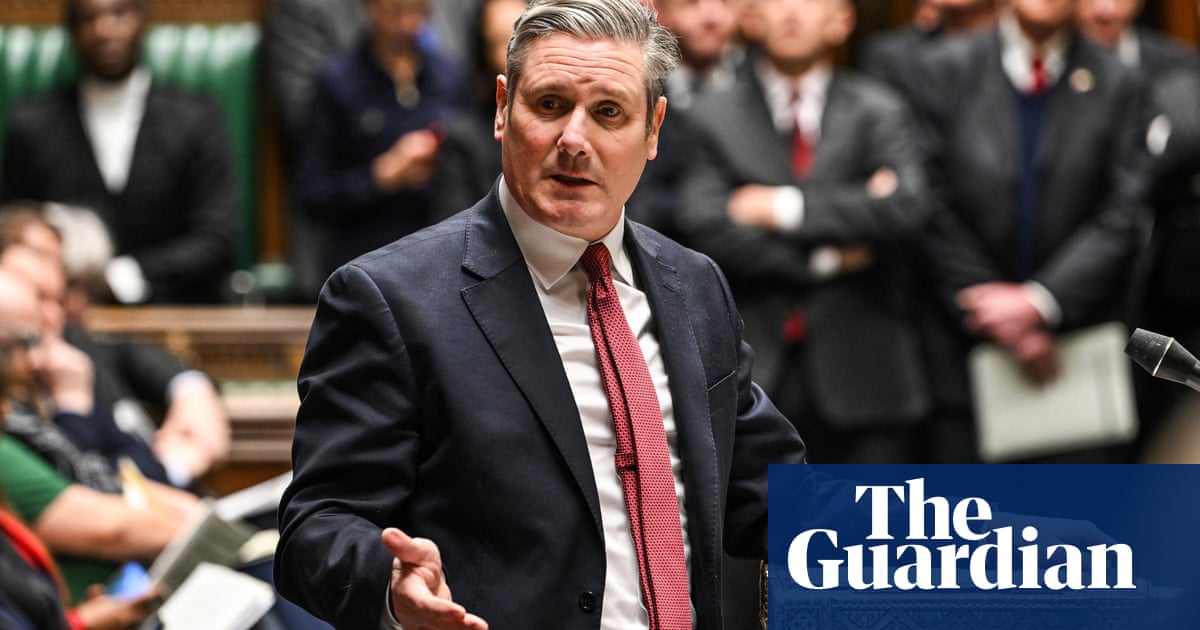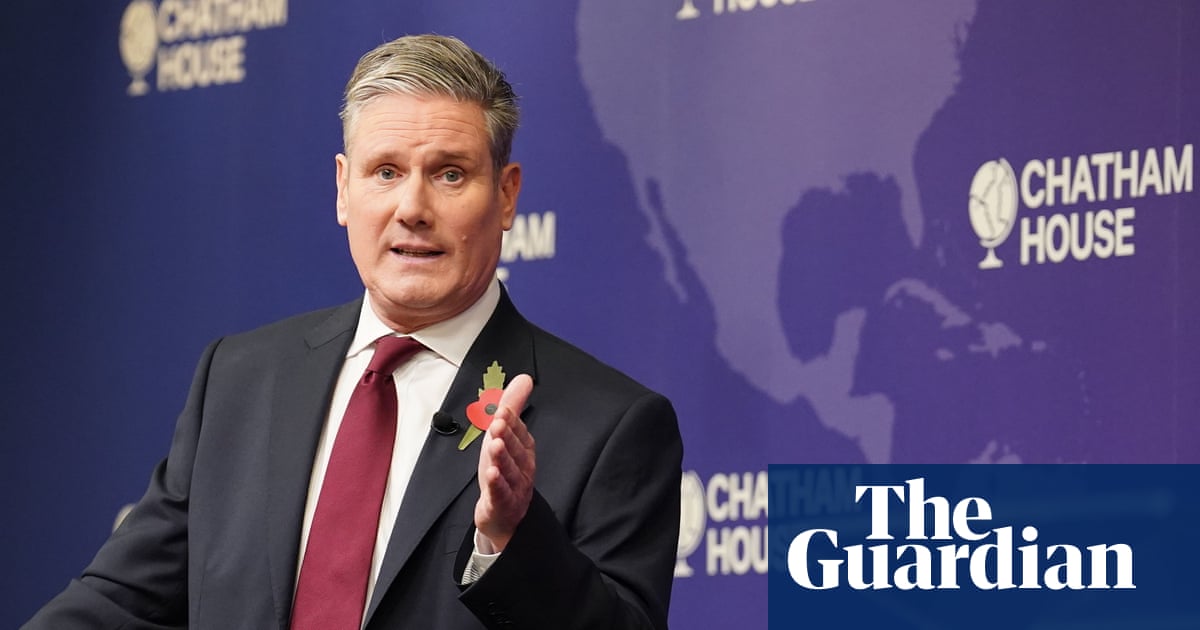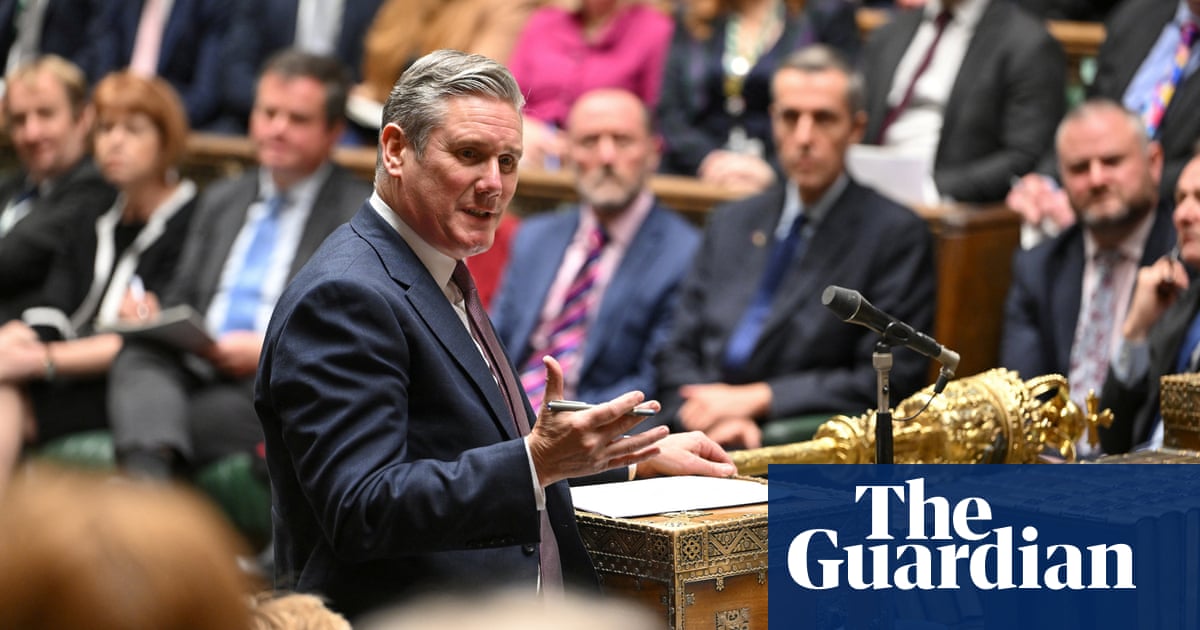
Keir Starmer risks triggering the biggest rebellion of his leadership if he tries to stop his MPs voting on Wednesday for an immediate ceasefire in Gaza, backbenchers have warned.
Labour MPs are urging their leader not to whip them against voting for a Scottish National party motion this week calling for a ceasefire, three months after a similar vote saw 56 members rebel, including eight frontbenchers.
Party whips have not yet decided how to approach Wednesday’s vote, but several MPs have told the Guardian they risk another damaging internal row if they try to oppose it.
The Scottish Labour party voted this weekend in favour an immediate ceasefire, but Starmer has so far stopped short of backing such a position, saying instead that Israel and Hamas need to “get to” an end to the fighting.
One Labour MP said: “I suspect it will be far more than the 56 who [rebelled] last time, especially given the Scottish Labour position and how many more MPs are really under pressure on this now.”
Another said: “I hope we end up in a better position than last time – we need to not get into the same position as last time.”
The Middle East crisis has proven one of the toughest tests of Starmer’s leadership. The Labour leader was criticised in the weeks after the 7 October attack for his strenuous defence of Israel’s military action. Then in November, he suffered the biggest rebellion since becoming leader when dozens of MPs defied orders to vote for an SNP motion calling for an immediate ceasefire.
Last week, Starmer suspended two Labour candidates for making derogatory remarks about Israel during a meeting designed to persuade those upset by his stance on the war not to leave the party. He was accused of acting too slowly to discipline Azhar Ali, however, after the party’s candidate in Rochdale was recorded saying he believed Israel had allowed the 7 October attack to happen as a pretext for war.
The SNP is now seeking to reopen Labour’s wounds with a motion on Wednesday mirroring the one in November. Since then, however, the Labour leadership has changed its position on the war, including calling for a ceasefire, even if not backing a permanent one straight away.
Starmer told the Scottish Labour conference in Glasgow this weekend that the “fighting must stop now” in Gaza, warning Israel not to invade the southern city of Rafah, where 1.5 million people are taking refuge.
Wes Streeting, the shadow health secretary, spurred hope among some Labour MPs that the party’s position was changing further when he said on Monday morning that Israel had gone “beyond reasonable self-defence” in Gaza.
He told Sky News: “We want to see a ceasefire, of course we do. And we have been increasingly concerned, as the wider international community has been, with the disproportionate loss of civilian life in Gaza.
“Israel has a responsibility to get its hostages back, every country in the world has a right to defend itself. But I think what we have seen are actions that go beyond reasonable self-defence and also call into question whether Israel has broken international law. The ICJ [international court of justice] are now investigating and we take all of that seriously.”
Asked if he thought Israel had gone beyond what was proportionate, Streeting replied: “I think, objectively, yes, Israel has gone too far. And we have seen that with a disproportionate loss of innocent civilian life.”
In another interview on TalkTV, however, Streeting said the party’s leadership had not yet decided how to approach Wednesday’s vote.
“We’ll see what the final motion looks like,” he said.“We’re considering our own options on this – we all want to see a ceasefire. We’ve seen an intolerable loss of innocent civilian life during the course of this war.
“But we’re not going to be pushed around by protesters, and we’re not going to be told what to say by our opponents in parliament either.”
Guardian Newsroom: The unfolding crisis in the Middle East
On Wednesday 20 March, 7-8.15pm GMT, join Devika Bhat, Peter Beaumont and Ghaith Abdul-Ahad as they discuss the fast developing crisis in the Middle East.












